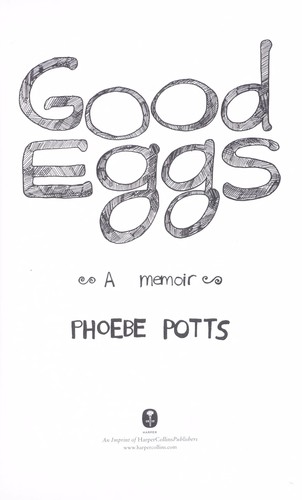Literally Graphic reviewed Good eggs by Phoebe Potts
Review of 'Good eggs' on 'Goodreads'
3 stars
This book is a fairly well put together memoir about an important topic, namely infertility. Maybe I've just OD'd on graphic memoirs but this one didn't really strike me as anything special. While it felt more professional then Pregnant Butch, that might just be due to the bigger publisher. Then again, if HarperCollins had anything to do with overextending this book by about 100+ pages, I'm not sure if Potts really came out ahead.
While the selling point of the novel is the issue of fertility, the story itself ends up starting much earlier - around the time Potts starts suffering from depression. And while her depression certainly effects her fertility journey, Potts spends about equal time talking about her journey through depression as she does talking about her journey through infertility. We follow Potts to Texas, rural Mexico and back up to New England. We watch her go through several jobs, her entire relationship with her now husband and spend a lot of time describing her mother's relationship with Judaism. Some of this relates back to her journey through infertility, a lot of it does not!
But of course the book was described accurately it would sound much more bland and nondescript.
That said, I did enjoy this book. I liked how she would give random dialog to her slippers. I loved watching how patient and kind her husband was through all of Potts' stress and frustration. I even liked how she intertwined her journey through infertility with her journey back into Judaism. Potts writing and art style are equally charming and she's brutally honest about how she feels. No holds bard.
But I, of course, have one last criticism. Why are the translated words of the Spanish speaking people in broken English? While it is true that Spanish and English are very different grammatically, I feel like what is probably a "literal translation" ends up sounding rather patronizing. Combined with the fact that Potts is a kind of "white savior" figure during the opening portion of the memoir it came across as stupid lazy ingrained old-fashioned ideas that Potts (and maybe her editors) has perhaps not taken the time to rethink
I also would have liked some suggestions on how to relate to people going through these sorts of journeys.

